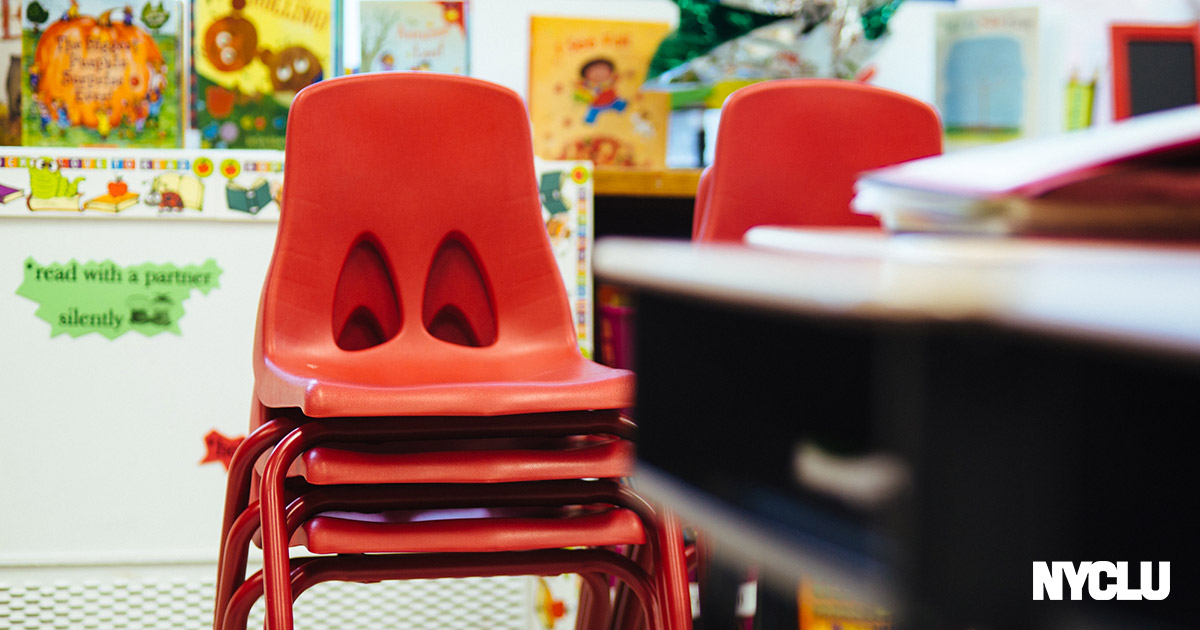A Long Island Legislature is Robbing New Yorkers of Color of their Voting Rights
Civil Liberties Union

I am in front of a group of students having a discussion about consent. One student raises their hands. She asks, “But, if you already started having sex with them, you can’t stop right? Even if you wanted to stop, you have to keep going, don’t you?”
I look around the room, several students are nodding in agreement. I tell them to form a circle and I also take a seat. I know a deeper discussion needs to be had.
This is exactly what comprehensive sexuality education is. Most people don’t think about sexuality education but when they do they likely have a narrow impression that includes condoms on bananas and pictures of sexually transmitted infections under microscopes.
Protecting against unplanned pregnancy and STIs is an important part of sex education, but there is so much more than that. As sexuality educators, we facilitate workshops not just on birth control but also healthy relationships; not just sexually transmitted infections but also consent.
Comprehensive sexuality education empowers young people with knowledge and skills. It’s been proven to help youth learn information that helps them make informed decisions about their health and their relationships, and how to become better advocates for themselves.
A 2012 review of sexuality education programs conducted by Advocates for Youth, showed that these programs helped participants increase condom use, reduce the number of sex partners, and/or reduce the incidence of unprotected sex.
Without sexuality education, students miss out on critical information that can protect their health. In 2017, 55 percent of diagnosed cases of syphilis, gonorrhea, and chlamydia in New York were among individuals younger than 26 and according to the CDC, youth aged 15-24 account for half of new STIs in the United States each year.
For over five years, my role was to have conversations with students that make many adults uncomfortable. Many people don’t even know what sexuality education is or how critical it is to improve health and educational outcomes. And lots of our students aren’t getting it.
New York is often seen as a progressive state, but when it comes to sexuality education in New York, our state is behind the curve. New York only mandates HIV education and sexuality education is not regulated.
Because of this, the sexuality education taught in New York schools is often medically inaccurate, fear-based, and stigmatizing.
Without sexuality education, students miss out on critical information that can protect their health.
This is why the New York Civil Liberties Union is advocating for a Comprehensive Sexuality Education that would require all schools in New York to teach medically accurate, age-appropriate, and inclusive sexuality education across all grades. That’s something all young people are entitled to.
For years, members of the NYCLU’s Teen Activist Project have advocated for comprehensive sex education. Our youth know they deserve better and it seems as though more people are starting to agree.
Thanks to the organizing on the ground by students, educators, and policy experts, the New York City Council approved a resolution in early September that could be a game changer. The resolution calls for the New York City Department of Education to adopt all of the policy recommendations of the Mayor’s Sexual Health Education Task Force. The Council also asked the DOE to require that students at all grade levels get comprehensive sexual health education on a regular basis.
If the DOE adopts a CSE requirement, students in New York City schools would get the sexuality education they need. This would be great for students in the city, but all students in New York have the right to sexuality education that makes them informed and not ashamed.
The state bill would do that. That is why we need to make sure it passes in the 2020 legislative session.